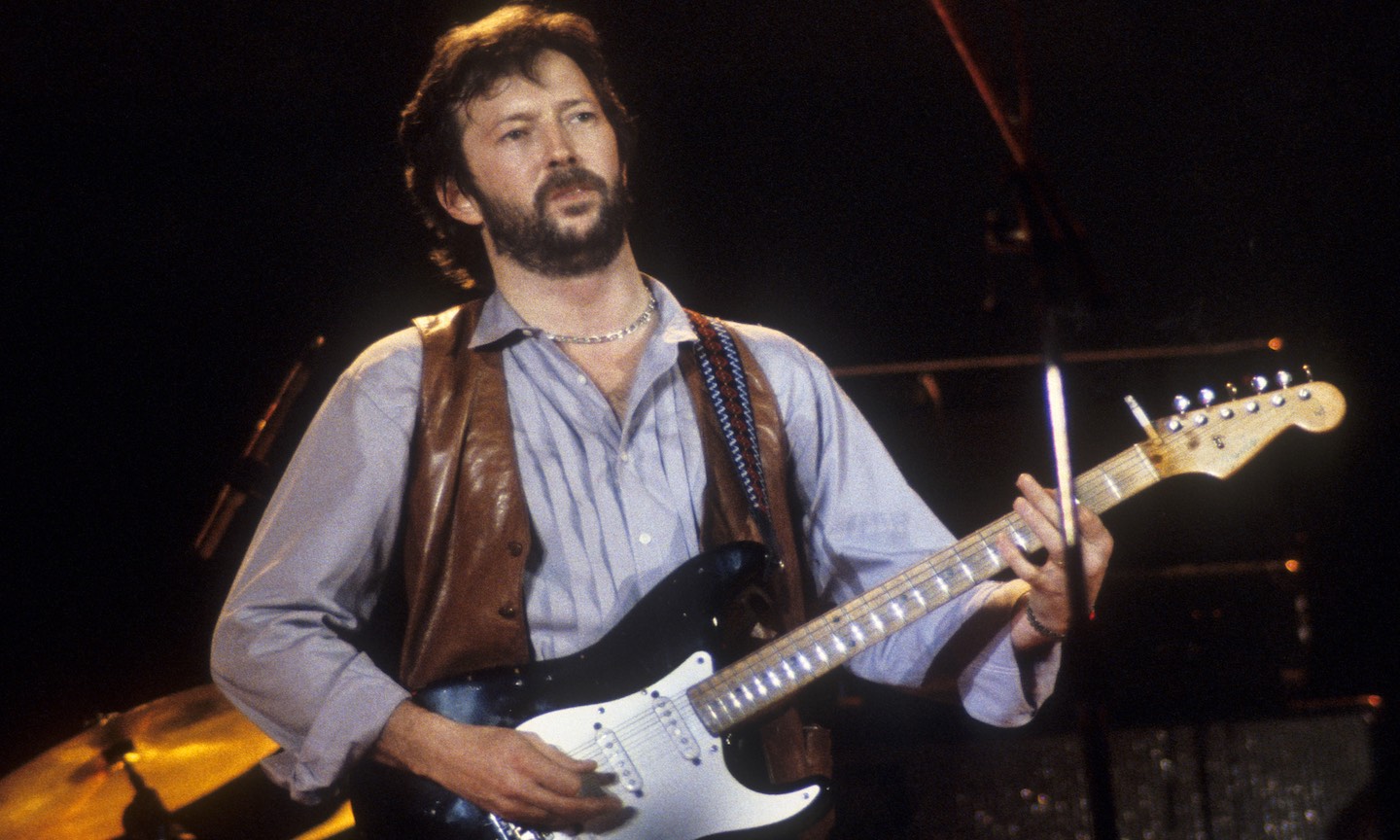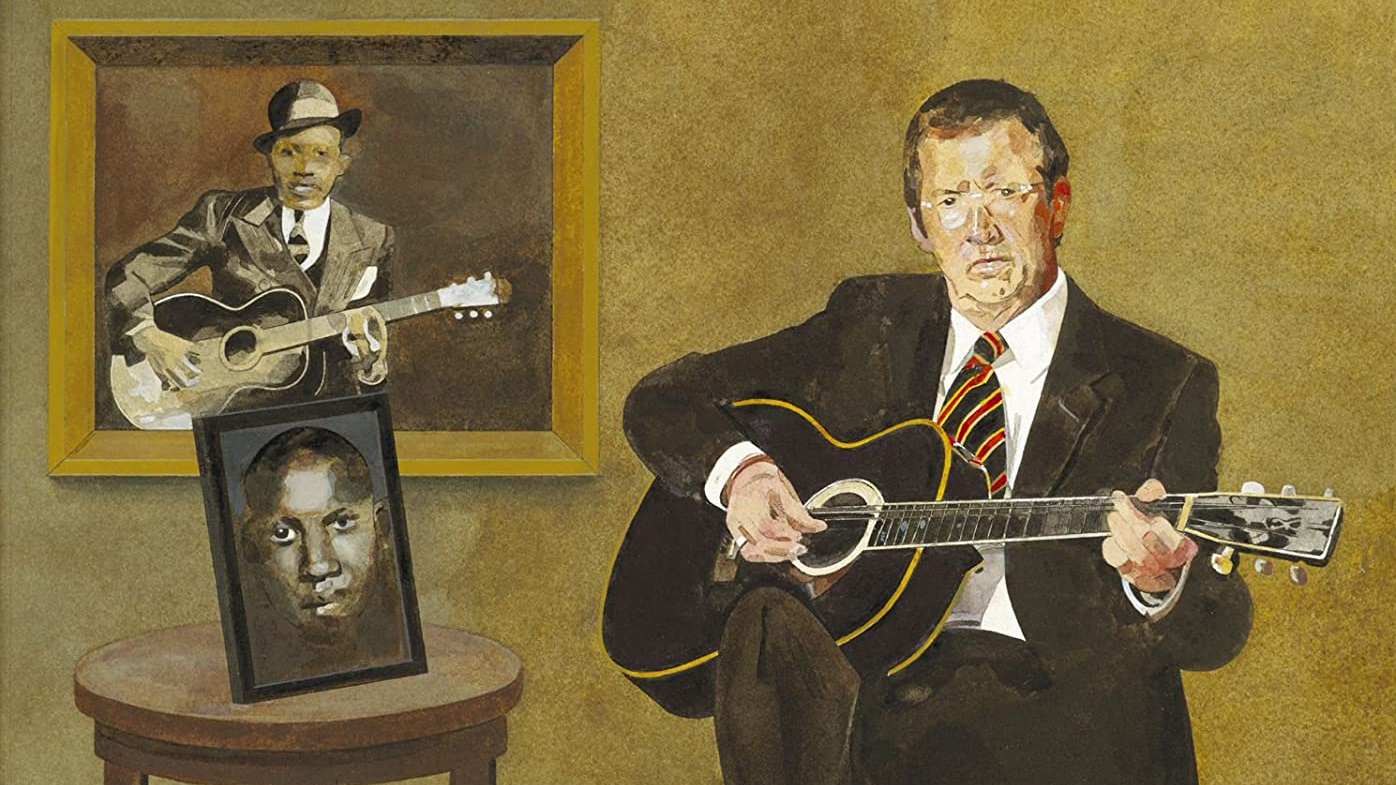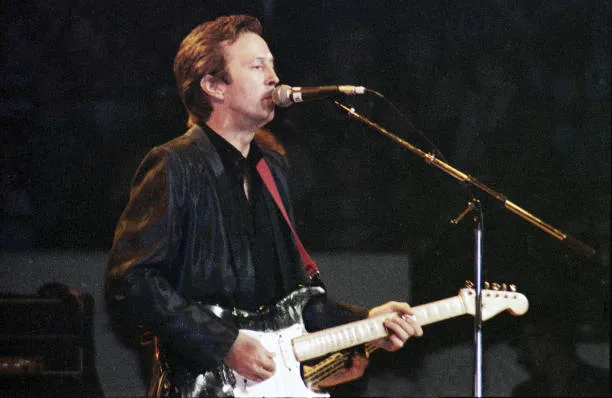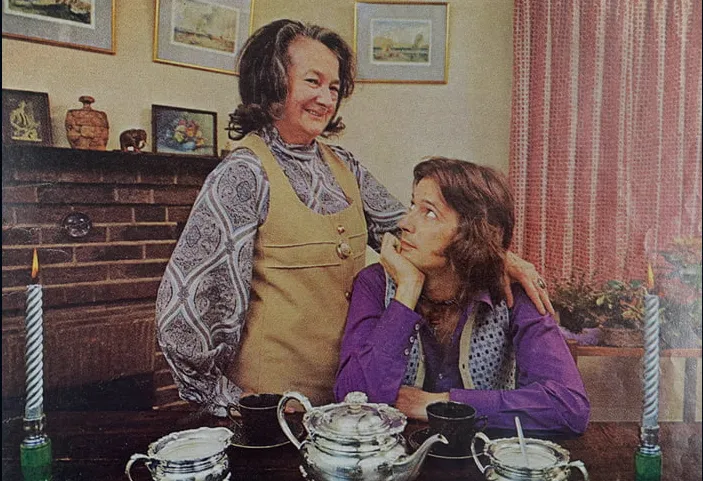Eric Clapton, the iconic guitarist and songwriter, often referred to as "Slowhand," has been a towering figure in the world of rock and blues for over five decades.
His influence on the genre is immeasurable, and his soulful playing continues to inspire musicians around the globe.
But even legends have their heroes. So, who is Eric Clapton's idol? The answer lies in the soulful strings of an earlier blues virtuoso, a man whose music left an indelible mark on Clapton's style and career: Robert Johnson.
Eric Clapton: The Legendary Career

Before diving into the profound impact of Robert Johnson on Clapton, it’s crucial to appreciate the breadth and depth of Clapton's career.
Born on March 30, 1945, in Ripley, Surrey, England, Eric Patrick Clapton emerged as a guitar prodigy in his teens.
His early stints with The Yardbirds, John Mayall & the Bluesbreakers, Cream, Blind Faith, and Derek and the Dominos showcased his extraordinary talent and versatility.
Songs like "Layla," "Wonderful Tonight," and "Tears in Heaven" have not only become classics but have also cemented Clapton’s reputation as one of the greatest guitarists of all time.
His style—a masterful blend of rock, blues, and a touch of jazz—set him apart in a crowded music landscape. However, Clapton’s musical journey and style are deeply rooted in his admiration for one particular bluesman: Robert Johnson.
The Influence of Robert Johnson: Eric Clapton's Idol

Robert Johnson, a Delta blues pioneer, lived a short but intensely influential life. Born on May 8, 1911, in Hazlehurst, Mississippi, Johnson's contribution to blues music is monumental despite recording only 29 songs before his untimely death in 1938.
His intricate guitar work, emotive singing, and poignant lyricism captured the essence of the human experience.
It was Johnson's music that captivated a young Clapton, who confessed to listening to Johnson’s recordings repeatedly, trying to decode the complexities of his guitar playing and the depth of his soulful voice.
Clapton frequently cited Johnson as his primary influence, referring to his music as the foundation upon which he built his own style.
Eric Clapton Discovers Robert Johnson
Eric Clapton first encountered Robert Johnson's music in the early 1960s. At that time, the British blues scene was burgeoning, with young musicians digging deep into the blues records of American artists.
Clapton came across Johnson’s music through a fellow musician and was immediately struck by its haunting quality and technical brilliance.
Johnson’s ability to convey profound emotion through his guitar work and vocals resonated deeply with Clapton.
It was as if Johnson's music unlocked a new dimension of blues for Clapton, who began to emulate Johnson's techniques and integrate them into his own playing.
The Depth of Influence: Clapton's Tribute to Robert Johnson
Eric Clapton’s admiration for Robert Johnson extended beyond mere acknowledgment. He took every opportunity to pay homage to his idol, both in his music and through public statements.
In 2004, Clapton released an album titled "Me and Mr. Johnson," comprising covers of Robert Johnson's songs.
This album was a heartfelt tribute, capturing Clapton’s respect and deep emotional connection to Johnson's music.
The project allowed Clapton to revisit the songs that shaped his musical identity, bringing them to a new audience. Tracks like "Love in Vain," "Cross Road Blues," and "Hellhound on My Trail" were given new life through Clapton’s interpretations, blending reverence for the originals with his unique style.
Clapton’s Guitar Playing and Johnson’s Influence

Robert Johnson's guitar playing is renowned for its complexity, characterized by intricate fingerpicking and rhythmic innovation. Clapton, who is known for his technical prowess, drew heavily from these elements.
Johnson's use of open tunings, slide guitar, and his ability to make a single guitar sound like two instruments playing simultaneously profoundly impacted Clapton's approach to the instrument.
Clapton’s famous cover of "Crossroads," originally written by Johnson, is a testament to this influence.
His interpretation retains the raw intensity of Johnson's version while showcasing Clapton’s own virtuosity.
This song, a staple at Clapton’s live shows, encapsulates the fusion of Johnson’s groundbreaking techniques with Clapton’s modern sound.
The Emotional Connection: Clapton’s Understanding of the Blues
Beyond technical mastery, Robert Johnson's music is revered for its emotional depth—expressing themes of love, loss, and existential despair.
Clapton, often praised for the emotional intensity in his playing, credits Johnson with teaching him how to convey deep, personal feeling through music.
Clapton’s performances of Johnson’s songs often carry a poignant, almost spiritual energy.
The palpable emotion in tracks like "Tears in Heaven" and "Layla" reflects Clapton’s deep understanding of the blues, an understanding honed through his idolization of Johnson.
Clapton and Johnson: A Transcendent Musical Bond
The connection between Eric Clapton and Robert Johnson transcends mere fandom. Clapton’s reverence for Johnson reveals a transcendent musical bond, a teacher-student relationship that spans decades and vastly different life experiences.
Through Johnson’s music, Clapton found both a mentor and an endless source of inspiration.
This bond is evident not just in Clapton's recordings or tributes but also in his live performances.
When Clapton plays Robert Johnson’s music, there’s a palpable sense of homage—a merging of past and present, bridging the gap between the primordial blues of the Delta and the electric reverberations of rock.
Robert Johnson’s Enduring Legacy Through Clapton
The legacy of Robert Johnson stands firm in the annals of blues music, but it is through disciples like Eric Clapton that his influence continues to flourish.
Clapton's global platform has introduced millions to Johnson’s music, ensuring that his contributions are recognized and celebrated by future generations.
Clapton’s advocacy for Johnson’s legacy demonstrates the enduring power of music to transcend time and cultural boundaries.
By continually revisiting and reinterpreting Johnson’s work, Clapton keeps the flame of traditional blues burning brightly in the contemporary music scene.
The Mentorship of Records: Learning from Johnson
In an era before digital tutorials and online lessons, Eric Clapton learned from his idol the only way possible: by listening intently to vinyl records, often on repeat.
Each scratch and pop on the record became a companion in Clapton’s quest to decode Johnson’s techniques.
This process of learning, characterized by intense focus and dedication, is a testament to Clapton's commitment and reverence for Johnson's artistry.
It reflects a broader tradition among musicians of learning from recorded performances, a method that forges deep connections to the music and its creators.
The Bigger Picture: Eric Clapton’s Role in Music History
Understanding Eric Clapton’s connection to his idol, Robert Johnson, provides valuable insight into the broader picture of Clapton’s role in music history.
Clapton is not just a remarkable guitarist and songwriter; he is also a curator of blues history, a musician devoted to preserving and honoring the roots of his craft.
Clapton’s journey illustrates the cyclical nature of music, where each generation draws from the past to create something new.
His reverence for Johnson feeds into a larger narrative where the contributions of early blues musicians are continuously celebrated and integrated into modern music.
The Everlasting Influence of Robert Johnson on Eric Clapton
Eric Clapton’s idolization of Robert Johnson is a story of profound musical influence and deep emotional connection.
Johnson’s mastery of the blues, both technical and emotional, resonates through Clapton’s extensive body of work, serving as the backbone of his storied career.
This relationship underscores the importance of musical heritage and the lasting impact one artist can have on another.
For Clapton, Robert Johnson is more than an influence; he is a guiding force, a source of eternal inspiration that shapes and defines Clapton’s musical journey.
As long as Clapton’s strings sing, the spirit of Robert Johnson’s blues will continue to echo through the annals of music history.



